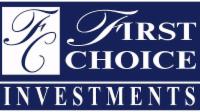
Predictions of an impending recession brought on by rising interest rates have been made all year long. Apart from the downturn in the real estate industry, the economy has not been exhibiting signs of a recession. Real estate typically comes first, then the economy. A recession is therefore less likely to occur if the real estate market recovers this spring. On the other hand, a recession becomes much more likely if rates remain stubbornly high and real estate sales continue to lag.
During the holiday week, rates started to decline. 30-year rates increased to 6.42% from 6.27% for the week ending December 29. Additionally, the 15-year loan rate marginally dropped to 5.68%. 30-year fixed rates were on average 3.11% a year ago, which is over 3.25% lower than they are now.
It is anticipated that the slowdown in home sales transactions that started as mortgage rates increased in 2022 will persist, resulting in a decrease in home price increases and moving the balance of the housing market away from sellers. It will also take more than moderate home price increases to turn the housing market into a buyer's market. Instead, homebuyers will benefit from factors including an increase in the number of available properties, but prices will stay high, making housing unaffordable at a time when overall budgets are still tight. According to the Realtor.com 2023 Housing Forecast, buyers looking for affordable homes in 2023 will discover that prices aren't declining.
The National Association of Realtors predicted that though existing home sales in the United States will decline for a second consecutive year in 2023 to their lowest annual total since 2012, sales prices should remain stable.
The strong effort by the Federal Reserve to raise interest rates to combat inflation is expected to result in a further 6.8% decline to 4.78 million in 2023.

